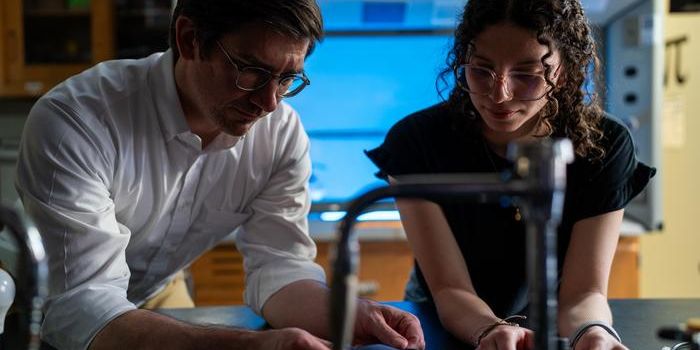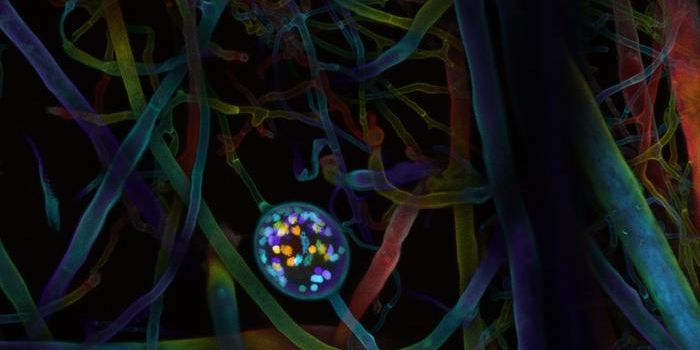How a Video Game Can Reduce Animal Disease Outbreaks
A study published in Frontiers in Veterinary Science is the first of its kind to advance epidemiological models for infectious disease outbreaks by factoring in human behavior. The study addresses the need to incorporating theories of behavior changes, communications and economic decision-making for disease models to give more accuracy of how outbreaks result.
The University of Vermont: (R-L) Scott Merrill, Asim Zia, Chris Koliba and Gabriela Bucini are part of a team of UVM researchers using video games and computational models to understand human behavior. Their research in the area of animal disease biosecurity shows how relatively small shifts in behavior can have dramatic impacts. (Photo: Sally McCay)
"We've come to realize that human decisions are critical to this picture," said Gabriela Bucini, a postdoctoral researcher in UVM's Dept. of Plant and Soil Science and lead author of the study. "We are talking about incredibly virulent diseases that can be transmitted in tiny amounts of feed and manure. Ultimately, controlling these diseases is up to the people in the production system who decide whether or not to invest and comply with biosecurity practices."
"Biosecurity efforts are often voluntary, but are critical to prevention, especially when there are no vaccines or treatments available," says Julie Smith, principal investigator of UVM's animal disease biosecurity project. "We have to understand where people are on the risk continuum, their barriers and challenges, and their ability to act. That information is critical to the response."

The University of Vermont: Disease dynamics in a simulated hog production system in North Carolina showed disease incidence to be highly dependent on risk attitudes and behaviors.
Using a grant from the U.S. Department of Agriculture to understand human behavior in animal disease outbreaks, researchers at the University of Vermont designed a video game that stimulated the spread of Porcine Epidemic Diarrhea virus (PEDv) in a regional, real-world hog production system.
"The risk attitudes and human decisions that we're incorporating in the model are really powerful," said Scott Merrill, co-author and researcher in the Dept. of Plant and Soil Science and Gund Institute for the Environment. "If we can change the way people behave, then we have a chance to make some dramatic impacts and avoid a devastating outbreak."

"A simple thing like going out the wrong barn door can have a huge impact," said Merrill. "With the game data, we can see big differences in the economic and disease dynamics as we change the type of information we're delivering, and the way it's delivered."
Source: The University of Vermont









